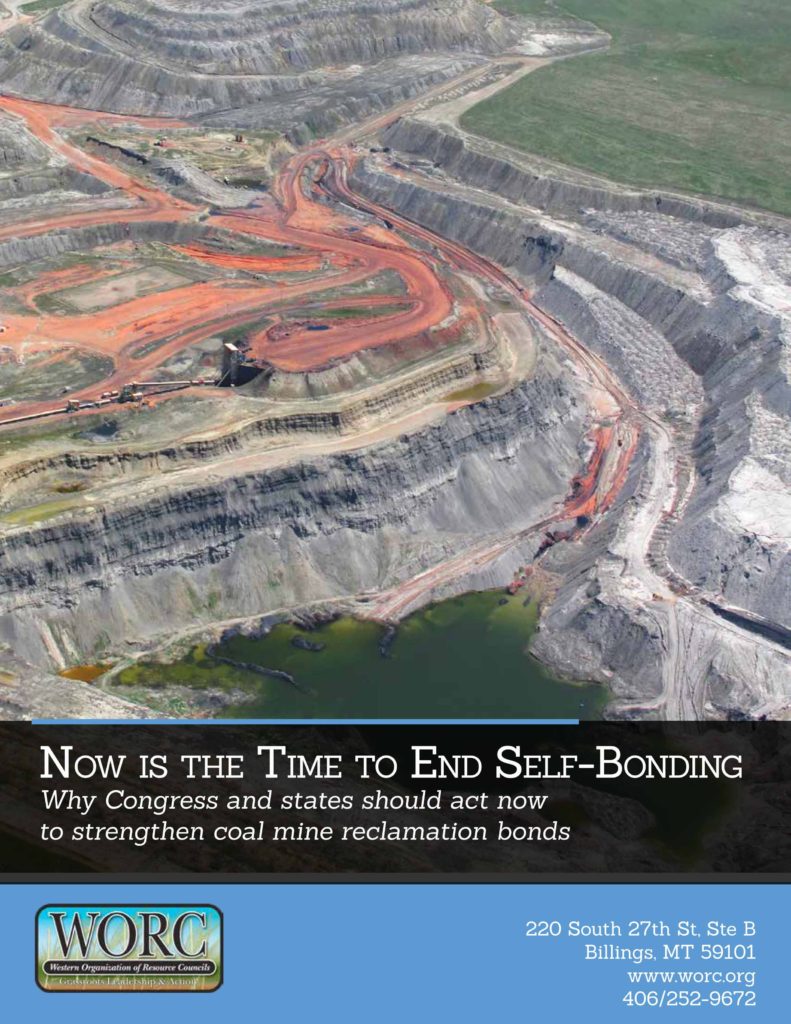Now is the Time to End Self-Bonding makes the case for why Congress and states should act now to protect coal communities from picking up the bill for coal mine cleanup.
A “self-bond” is a promise from a coal company to pay for legally required coal mine cleanup, known as reclamation, without providing any collateral. If a self-bonded coal company liquidates before completing reclamation, the self-bond becomes an uncollectible “I.O.U.” and the public is left without sufficient funds to complete reclamation. Several states continue to accept self-bonds for coal mines.
There has never been a better opportunity to end self-bonding altogether without excessive impact on the coal industry or the market for conventional reclamation bonds.
- The amount of outstanding self-bonds has hit historically low levels, following replacement of self-bonds by three major coal mining firms during their respective bankruptcy proceedings.
- Surety bonds, a conventional alternative to self-bonds, are available to the coal industry on affordable terms.
- Coal companies that remain self-bonded tend to have good credit ratings, which suggests they can replace self-bonds with conventional bonds on affordable terms.
As the coal industry continues to decline, self-bonding rolls the dice that taxpayers and the public purse will clean up after coal mining companies. Congress and states should expeditiously curtail the practice. Only the end of self-bonding will adequately protect coalfield communities from the burden of abandoned and unreclaimed coal mines.

